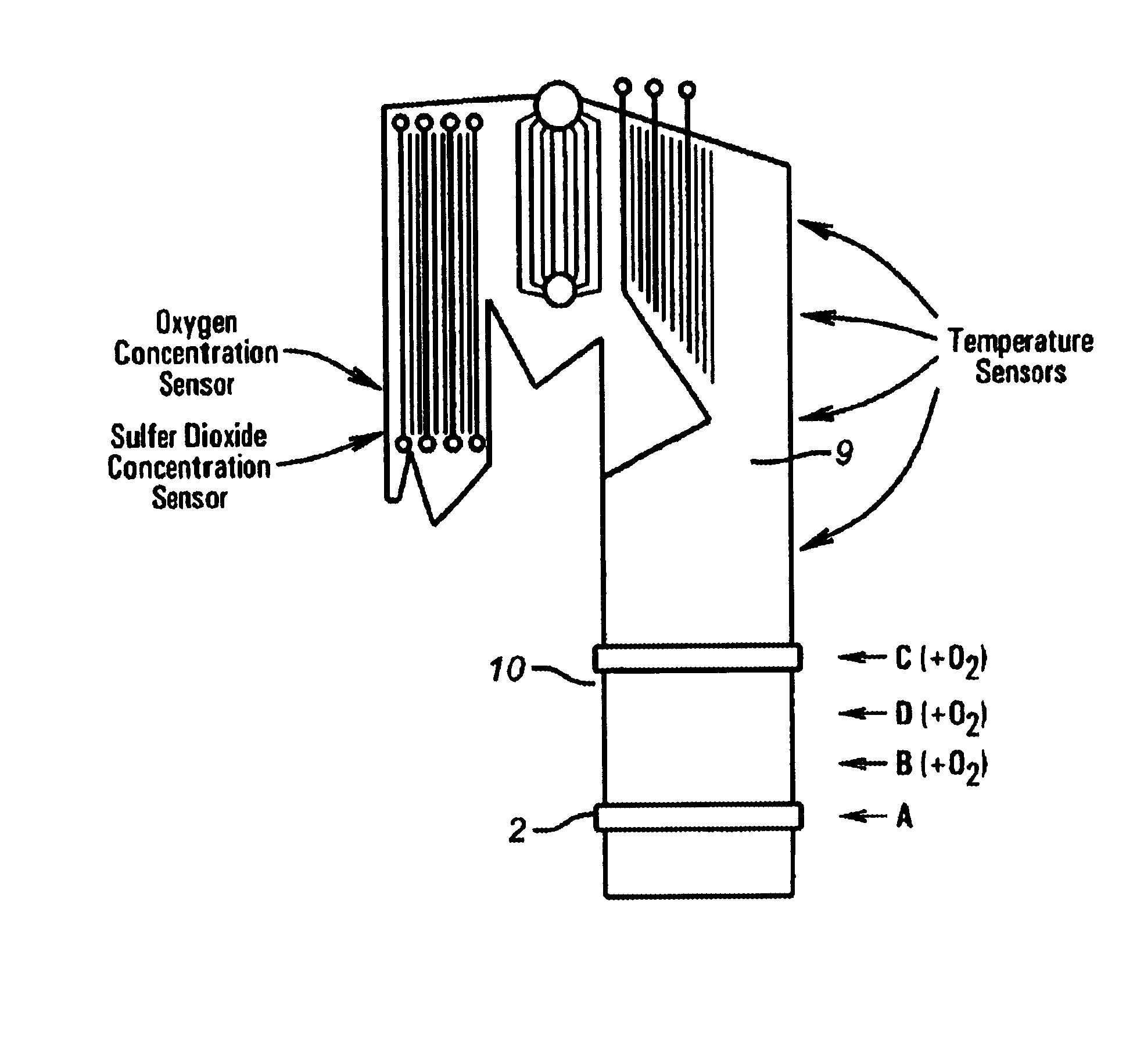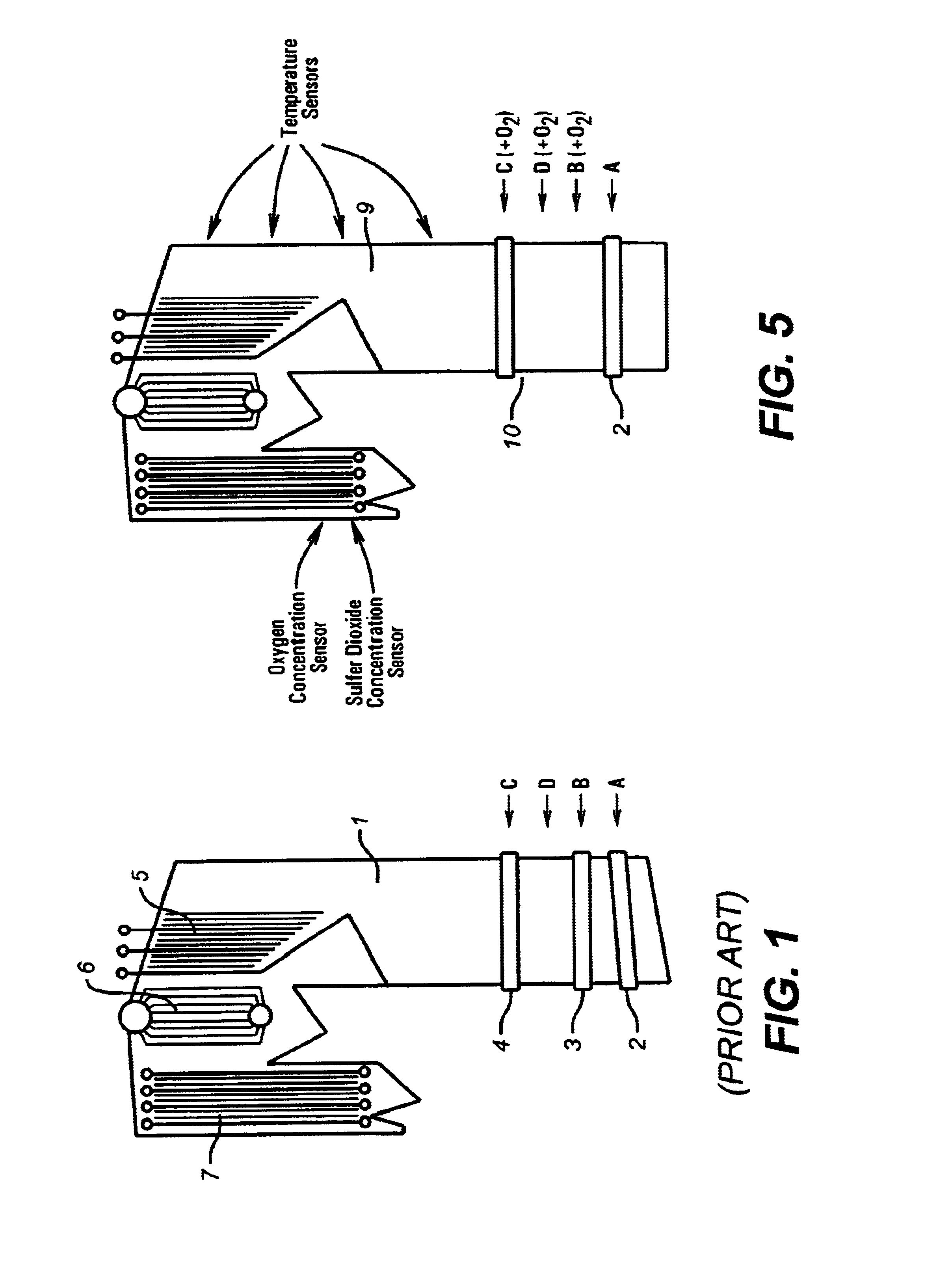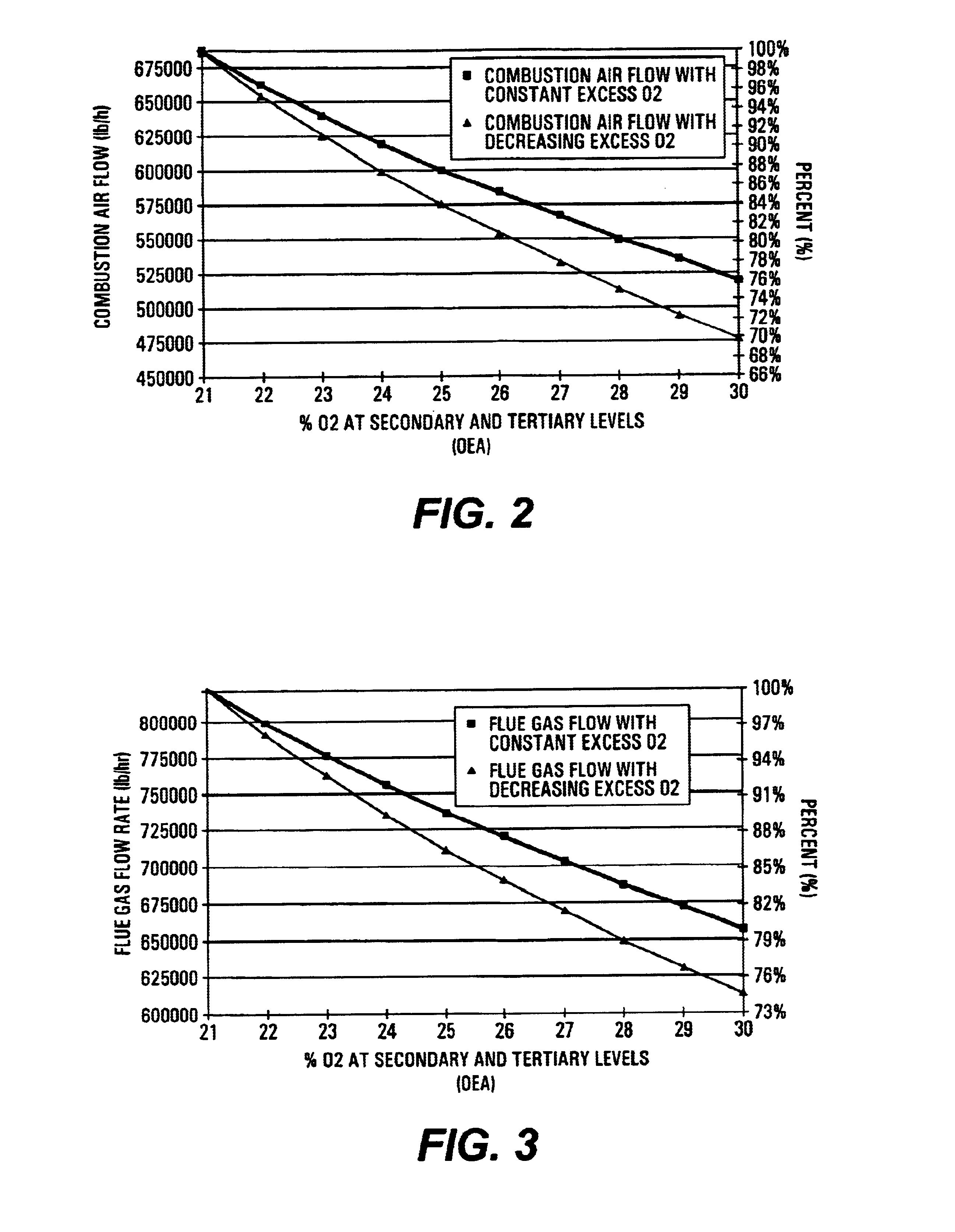Methods of improving productivity of black liquor recovery boilers
a boiler and black liquor technology, applied in the field of black liquor recovery boiler productivity improvement, can solve the problems of mills slowing down production, insufficient capacity to burn and recover chemicals, and affecting the cost of pulp produced in the mill
- Summary
- Abstract
- Description
- Claims
- Application Information
AI Technical Summary
Benefits of technology
Problems solved by technology
Method used
Image
Examples
Embodiment Construction
In a combustion process where air is used as the oxidant, a fraction of the available heat of combustion is lost in the sensible heat of the flue gas. The flue gas is essentially comprised of nitrogen, water, and carbon dioxide. When the nitrogen concentration of the flue gas is reduced by replacing some of the combustion air by pure oxygen, less energy is lost in the flue gas, and more useful heat becomes available. Another effect of oxygen enrichment is to increase the flame temperature, and increase the heat transfer rate to the water cooled furnace walls: this usually results is a lower flue gas temperature at the boiler exit. The higher oxygen concentration combined with the higher combustion temperature also accelerates the rate of combustion, allowing firing with a lower excess air while maintaining the concentration of unburned species low. In a recovery boiler, a higher temperature in the bottom part of the furnace has a positive effect on the smelt reduction efficiency bec...
PUM
 Login to View More
Login to View More Abstract
Description
Claims
Application Information
 Login to View More
Login to View More - R&D
- Intellectual Property
- Life Sciences
- Materials
- Tech Scout
- Unparalleled Data Quality
- Higher Quality Content
- 60% Fewer Hallucinations
Browse by: Latest US Patents, China's latest patents, Technical Efficacy Thesaurus, Application Domain, Technology Topic, Popular Technical Reports.
© 2025 PatSnap. All rights reserved.Legal|Privacy policy|Modern Slavery Act Transparency Statement|Sitemap|About US| Contact US: help@patsnap.com



